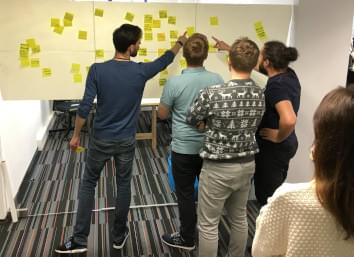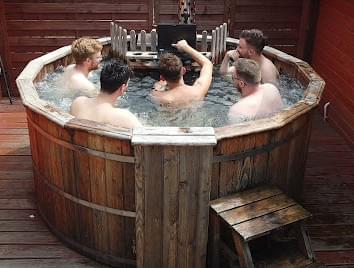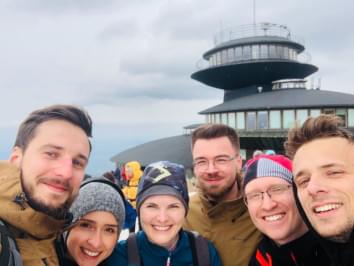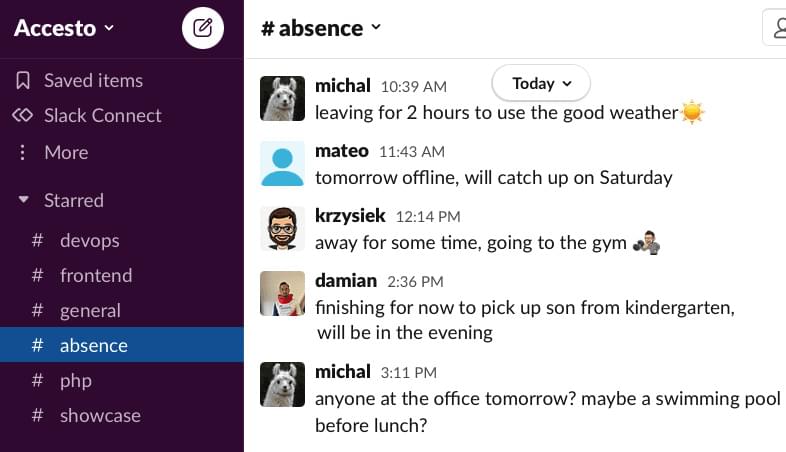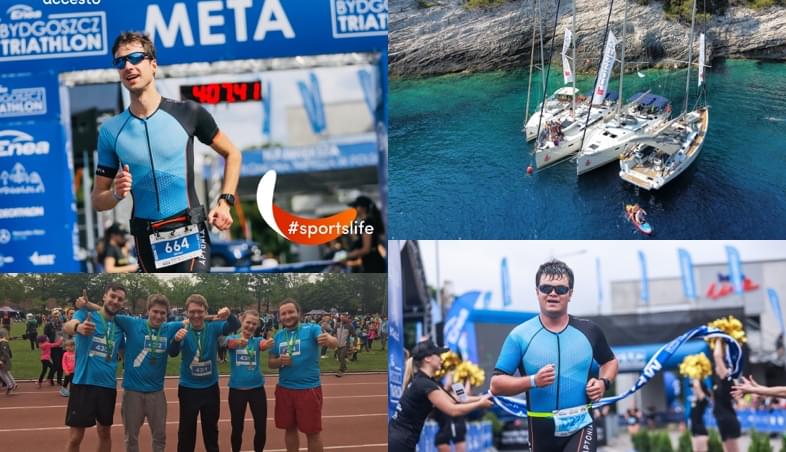FAQ
Know the details
Company
Accesto is a remote-first company. It always was, even before the covid times. There are no limits or strict rules on where you should be working from. Of course, as long as the team is ok with that (e.g. places with poor internet connection might be frustrating for everyone).
Yes we do! We are located in the heart of Wroclaw, Poland. Next to the market square. Open 24/7, with great coffee, tea, soda drinks and more. We offer a nice and quiet place to sit down, with good internet connection. It's close to different restaurants and places to hang around with your friends or teammates.
Besides of being remote-first, we are also a bit of an async company. This means there are no strict rules on the working hours, but we try to keep a small overlap every day to make calls with customers easier. Some of us prefer to start at 6 or 7 am, and others prefer to sleep longer and start at 9 or even 10. Depending on the team schedule, some members take a break during the day and go to gym or swimming. The only rule is that your team is ok with that. E.g. if you agreed to deliver something, and you suddenly decide to take 4 days off because of great weather - the team might be not happy with that.
We have two kinds of holidays: paid and unpaid. Each of us has an agreed number of holiday per month/year. Those are paid. But sometimes you prefer to have a bit more free time, and that's ok, this is the case where you can use the unpaid holidays. Next to that, as we have no strict working hours, you can actually take a day off in the middle of the week, and work those hours on some other day(s) - but, only if you want!
Benefits
Yes we do. In two forms. One is a set monthly allowance that you can spend on your health. Second one is a group insurance that covers doctors, dentists, etc. The second one is paid, but you can pay it from the first one.
We offer the polish "multisport" card that gives you access to most sports related facilities in the country. It is paid, but similarly to health care, we offer a monthly sports allowance that you can spend on anything you like (related to sport). Let it be the multisport card, or new running shoes - you decide.
Of course we do! We even have different types of them! There are some special occasion integrations: company birthday or Christmas. We also have company weekend trips, and finally we also have teammate "sponsored" integrations. The last one is the most common one. Each member of the team has a monthly allowance of 200 kudos to give. If you do something great, you receive kudos from others. You can spend the received kudos on some personal retreats, support a foundation, but also sponsor some team activities like escape rooms, karting, pizza, bowling and more.
Yes, our goal was to do one every quarter, but it takes lots of planning so we usually do 2-3 a year. They start on Thursday and last till Sunday. Sometimes we prefer mountains, and sometimes lakes. The list is not closed. We also take our partners with us.
As mentioned in the integrations questions, we have a monthly allowance of kudos to spend. When your teammate does something nice, you can give him kudos for that. Kudos are gathered on his account, and he can e.g. organize a pizza Friday for the whole team, or... take an additional day off.
Process
All our teams can use the help of our scrum master, and he is always involved in shaping the process. The process itself depends a lot on the project, and this includes also the product owner. There is always a person that holds that role, but depending on the project it might be someone from our team, or on our client's side.
That depends a lot on the team, but we have some common parts. Sprints with planning, refinement and retrospective are one of them. We also practice daily meetings, but in different form (video or written).
Depending on the team and project, you will have full or none contact with the client. The reasoning is quite simple. Some clients are great at this kind of communication and are a true help for the team. But in some cases are not yet ready to manage the product roadmap, describe tasks or be part of scrum sessions, in such cases it's better to have a layer between the dev team and the client.
Usually two weeks, but some teams may differ.
Each team consists of developers - both backend and frontend. A scrum master (not a real member, but always available). We do not practice separate QA members, but we way have a product owner or similar role. We prefer to always include the developers as much as we can into the whole process - that includes task refinement and bits of specification, as well as some basic tests while doing a code review.
Mostly SaaS products, with a proven business model, but facing technological obstacles on the way to onboard more clients. The goal is always to build a better crafted codebase, that will allow them to scale and ship features in a faster, more reliable way. Migrating into the cloud, launching new markets, etc. In almost every project our client is a small to medium business, that allows us to work with the decisive people - not wasting time on long decision paths.
Technology stack & tools
Our projects are always written in PHP and JS. In all cases, the backend technology is Symfony, or will soon be Symfony. Frontend is in most cases written in Angular or React. We like to make use of suitable technologies like Elasticsearch or Algolia, RabbitMQ, Redis, Docker, Kubernetes and more.
Our core is the combination of ClickUp and Gitlab - for repository hosting, code review and CI/CD pipelines. We also use Slack for communication. Some projects are held on Github with CI tools like CircleCI. We heavily use Docker and Kubernetes. Developer tools are a quite broad topic: stuff like PHPStorm, PHPUnit, PHPStan and more, for frontend quite similarly, ESlint, Cypress, and more. We also make use of additional tools like Sentry (a must-have), Datadog, etc.
That's fully on the team. There are obviously some business boundaries to take into account, but there is no dedicated person to make the calls, it's always a team's decision. That includes tools, technologies but also libraries and system architecture.

